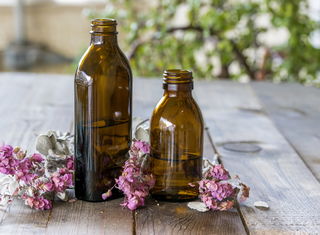Personality
What Using Essential Oils Says About Your Personality
New research examines the psychological predictors of essential oil use.
Posted March 22, 2020 Reviewed by Devon Frye

What can be inferred about someone's psychological characteristics by their use of essential oils? More than you might think, according to new research published in the journal, PLoS ONE.
For one, frequent users of essential oils are more likely to score high on a measure of "bullshit receptivity." (No, that's not a joke; there really is such a measure.) Users of essential oils also tend to be more religious than non-users. And, perhaps not surprisingly, women are more likely to use essential oils than men.
"Essential oil use is growing in popularity and ostensibly used for treating or preventing various ailments or conditions," state the researchers, led by Lindsay Ackerman of Michigan State University. "Despite the increase in use, there is a paucity of research on psychosocial predictors of essential oil use and their perceived effectiveness. [...] We found that receptivity to pseudo-profound fabricated statements and religiosity were the most consistent predictors of greater use of, perceived effectiveness of, and a willingness to spend more money on essential oils."
This doesn't mean that essential oil use is without its merits, however. Pain management, like beauty, is in the eye of the beholder—and numerous psychological studies have found placebo effects to be just as effective in improving health outcomes as approved medications.
To arrive at these conclusions, the researchers recruited 1,202 U.S. adults to participate in a short online survey. In the survey, participants were asked to report whether, and how often, they used essential oils. They were also asked to fill out a variety of tests, including ones gauging agreeableness, extroversion, neuroticism, conscientiousness, openness, need for cognition, and bullshit receptivity.
The bullshit receptivity measure is unique and thus deserves some explanation. Here's how it is described by the researchers:
"Bullshit receptivity, as measured by reception of pseudo-profound fabricated statements, was assessed using the 30-item Bullshit Receptivity Scale. Participants were given a series of statements that retained grammatical syntax of a sentence but were devoid of any true meaning and rated them on a five-point scale ranging from 1 (not at all profound) to 5 (very profound). Examples of these nonsensical statements include, “Imagination is inside exponential space time events,” and “As you self-actualize, you will enter into infinite empathy that transcends understanding.”
They found that 66 percent of people in their sample reported using essential oils. Furthermore, the most commonly used brands were NOW Essential Oils, Edens Garden, and doTerra.
The researchers then tested whether certain individual differences were better predictors of essential oil use than others. As stated, the largest and most consistent predictor of essential oil use was bullshit receptivity. But other interesting effects emerged as well. For instance, neuroticism was associated with a higher likelihood of using essential oils that purported to improve one's mental state. Also, highly conscientious people were less likely to use essential oils and politically conservative individuals were more likely to use topical essential oil treatments and treatments made specifically for spiritual enhancement.
The authors conclude, "The current study set out to examine reliable psychological predictors of essential oil use and perceived effectiveness. Bullshit receptivity and religiosity were the most consistent predictors; those high in these traits were more likely to use oils and find them effective in almost every instance. Future research can more directly examine why certain people report benefits while others do not."
Facebook image: Image Point Fr/Shutterstock
References
Ackerman, L. S., & Chopik, W. J. (2020). Individual differences in personality predict the use and perceived effectiveness of essential oils. PloS one, 15(3), e0229779.


